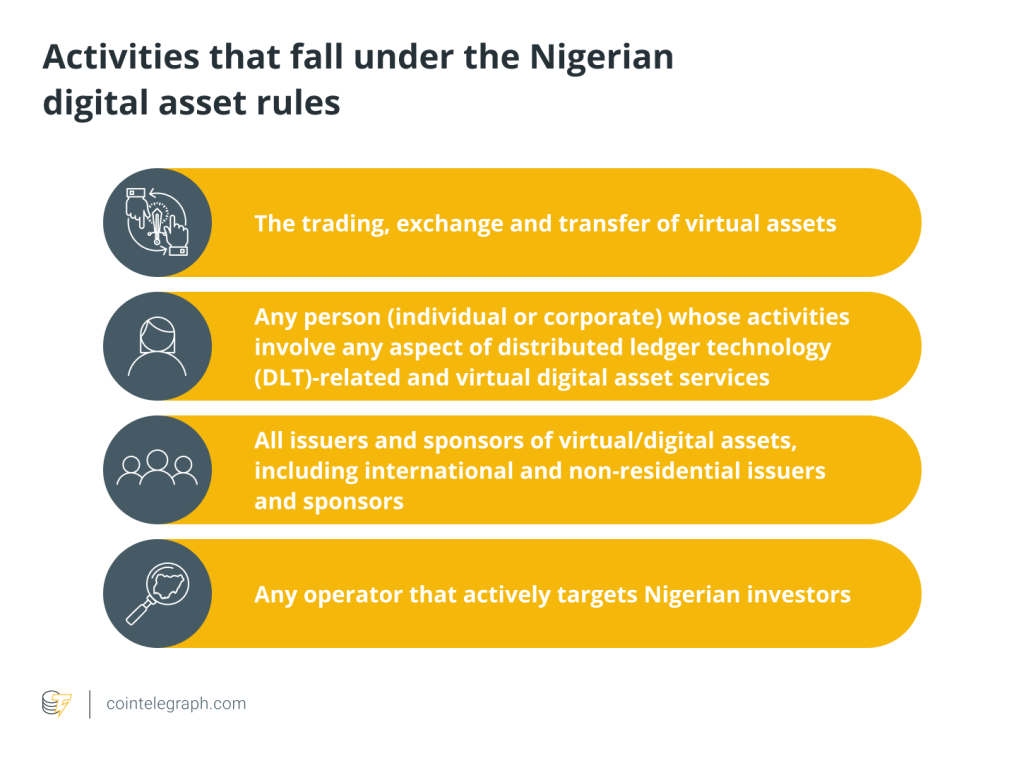Nigerian crypto advocates push for regulatory reforms amid protests

As the protest continues, whether crypto-specific demands will be integrated into the broader movement’s objectives remains to be seen.

In the wake of the ongoing #EndBadGovernanceInNigeria protests, voices from Nigeria’s cryptocurrency community are calling for the inclusion of industry-specific demands.
Many in the crypto sector see this movement, which seeks to address myriad governance issues, as an opportunity to push for regulatory reforms that could significantly benefit the industry and the broader economy.
Crypto industry needs representation
Rume Ophi, the former Secretary of Stakeholders in Blockchain Technology Association of Nigeria (SiBAN), has voiced strong support for including crypto-related demands in the protest agenda.
Ophi told Cointelegraph: “First and foremost, it is the right of citizens to make demands that favor the nation. In this case, it is a peaceful protest. Since some of these demands have been made by the protest organizers, one would expect a crypto demand to be there.”
Ophi believes favorable crypto regulations could attract significant investment, creating jobs and economic growth. “Like friendly crypto regulations so investors can jump on the industry to employ people. I don’t support the destruction of state property, but a demand to draft a friendly regulation by the National Assembly should be part of the demands,” he added.
No need for crypto protests
On the other hand, Chimezie Chuta, Chairman of the National Blockchain Policy Steering Committee, expressed a different perspective. He pointed out that the government has already taken substantial steps to support the blockchain and crypto industry in Nigeria.
Chuta stated that a steering committee has been established to ensure the successful implementation of the policy, which addresses many of the crypto industry’s needs. Therefore, Chuta sees no reason for the industry to protest against the policy.
Related: Why Nigeria’s blockchain success hinges on private sector expertise
Chuta further highlighted that a sub-committee is working on a unified regulatory framework to clarify the country’s Virtual Asset Service Provider (VASP) operations. This committee includes representatives from the Securities and Exchange Commission (SEC), the National Security Agency (NSA), the Central Bank of Nigeria (CBN), and the National Information Technology Development Agency (NITDA).
Previously, stakeholders in Nigeria’s blockchain and fintech industries have called on the government to introduce supportive regulations, to facilitate the widespread adoption and effective implementation of the national blockchain policy.
Meanwhile, the SEC has deployed a pre-assessment portal to access and qualify intending VASPs before they can be issued licenses.





Responses